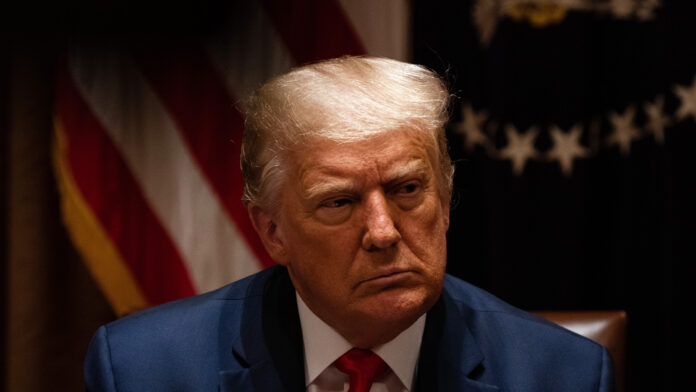When it comes to the many ongoing scandals surrounding Trump World, it’s tempting to think the Mar-a-Lago controversy is the most serious. After all, the former president stands accused of stealing classified materials, refusing to give them back, and obstructing the retrieval process. There’s an ongoing criminal investigation, and indictments are a distinct possibility.
But by some measures, the most dramatic scrutiny of Donald Trump and his team remains the Justice Department’s criminal probe of the Jan. 6 attack and the Republicans’ efforts to overturn the election results.
For months, there was ample speculation about whether investigators were moving forward with any vigor at all. As the latest New York Times reporting suggests, those questions continue to get answers.
Trump impeachment: Senate paves way for speedy trial of ex-president
Donald Trump hires new impeachment defense team after lead lawyers quit
According to the Times’ reporting, much of which has been confirmed by NBC News, federal agents executed court-approved search warrants, taking the phones of at least two people — Trump lawyer Boris Epshteyn and campaign strategist Mike Roman — while also issuing subpoenas to a variety of figures, including Dan Scavino, Trump’s former social media director, and Bernie Kerik.
The subpoenas, according to the Times, were related to the investigation into the fake electors scheme.
To quickly recap for those who might benefit from a refresher, let’s revisit our earlier coverage and review how we arrived at this point. It was in March when the Times first reported that federal prosecutors “have substantially widened their Jan. 6 investigation to examine the possible culpability of a broad range of figures involved in former President Donald J. Trump’s efforts to overturn the results of the 2020 election.”
It raised a few eyebrows for a reason: The Justice Department hasn’t made a lot of noise about its Jan. 6 probe, but the reporting suggested it was eyeing Team Trump, and not just rank-and-file rioters who launched their assault in his name.
Around the same time, The Washington Post also reported that the federal grand jury had “issued subpoena requests to some officials in former president Donald Trump’s orbit who assisted in planning, funding and executing the Jan. 6 rally.”
In the months that followed, the grand jury heard from top members of former Vice President Mike Pence’s team. As part of the same probe, federal investigators descended on Jeffrey Clark’s home; FBI agents executed a search warrant against Trump lawyer John Eastman; and Ali Alexander, the founder of the “Stop the Steal” group that organized a Jan. 6 rally, also testified.
We also learned a month ago that a grand jury subpoena made a sweeping demand for “all materials, in whatever form” that the National Archives had given to Congress’ Jan. 6 committee, including “records from the files of Mr. Trump’s top aides, his daily schedule and phone logs and a draft text of the president’s speech that preceded the riot.”
It’s against this backdrop that federal law enforcement has seized some Trump advisers’ phones and blanketed his aides with about 40 subpoenas.
It’s unlikely that anyone would characterize the Justice Department’s probe as swift or rushed, but let there be no doubt: This investigation exists and it’s obviously intensifying.
For the former president and his political operation, this is not at all good news.

